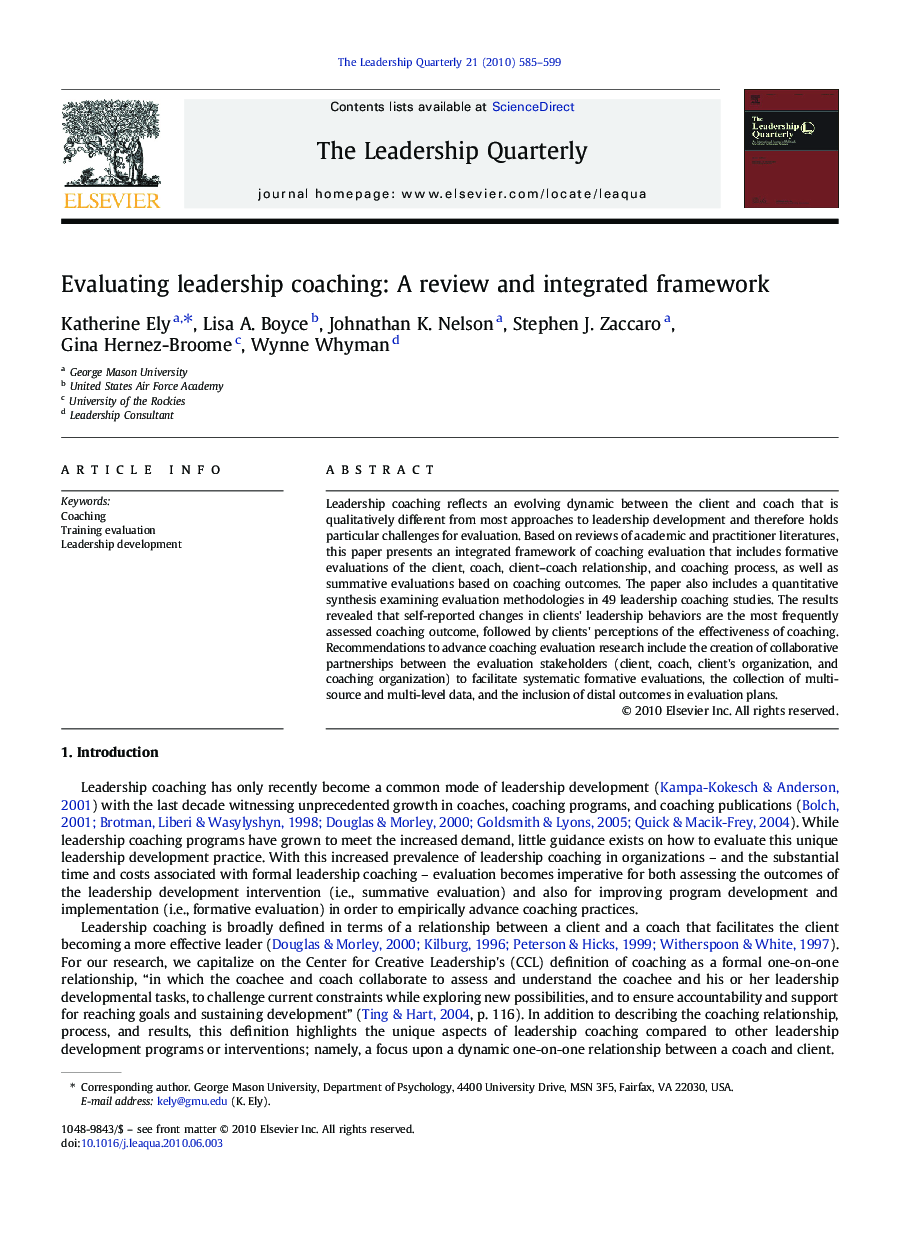| Article ID | Journal | Published Year | Pages | File Type |
|---|---|---|---|---|
| 887873 | The Leadership Quarterly | 2010 | 15 Pages |
Leadership coaching reflects an evolving dynamic between the client and coach that is qualitatively different from most approaches to leadership development and therefore holds particular challenges for evaluation. Based on reviews of academic and practitioner literatures, this paper presents an integrated framework of coaching evaluation that includes formative evaluations of the client, coach, client–coach relationship, and coaching process, as well as summative evaluations based on coaching outcomes. The paper also includes a quantitative synthesis examining evaluation methodologies in 49 leadership coaching studies. The results revealed that self-reported changes in clients' leadership behaviors are the most frequently assessed coaching outcome, followed by clients' perceptions of the effectiveness of coaching. Recommendations to advance coaching evaluation research include the creation of collaborative partnerships between the evaluation stakeholders (client, coach, client's organization, and coaching organization) to facilitate systematic formative evaluations, the collection of multi-source and multi-level data, and the inclusion of distal outcomes in evaluation plans.
